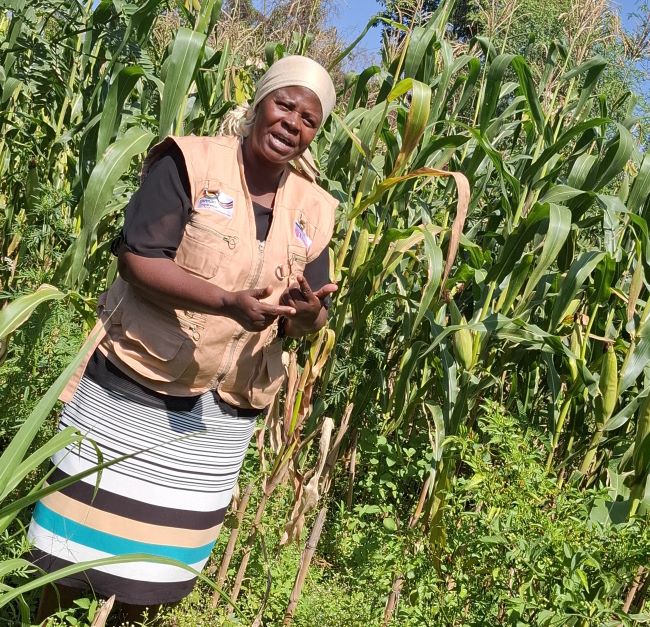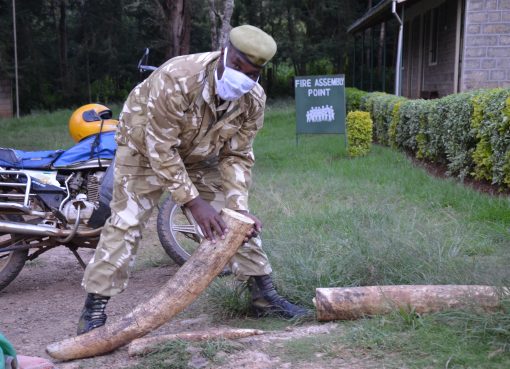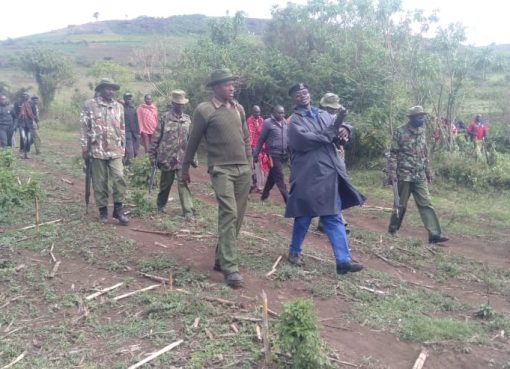As the world grapples with the challenges of climate change, the agricultural sector had for a long time suffered the impact of the global phenomena before reality sunk in most quarters.
Massive crop failures, floods, droughts that were occasioned by heavy precipitation due to global warming, were a common occurrence to farmers, pushing some to opt out of the venture altogether after recording losses during successive planting seasons.
In Kenya where agriculture contributes more than a quarter of the Gross Domestic Product, a similar pattern was replicated further aggravating the already precarious food security status of the country.
The government had since been compelled to import foodstuffs to bridge the deficit because farmers could no longer produce enough to feed the nation after runoff rain water washed away critical nutrients on their farmlands.
However, all is not lost after all, since the Germany agency for International Corporation (GIZ), unveiled a multi- faceted Cross Soil Project, to advice and offer extension training services to farmers on best practices to rejuvenate their once arable land to produce the desired yields again.
According to GIZ advisor in charge of Extension Services and Training Ms. Flora Ajwera, the “Soil protection and rehabilitation of degraded land in Kenya” programme which ran from 2015 to 2023, recorded a remarkable milestone after the 119,808 small holder farmers from 46,080 households put their training to use.
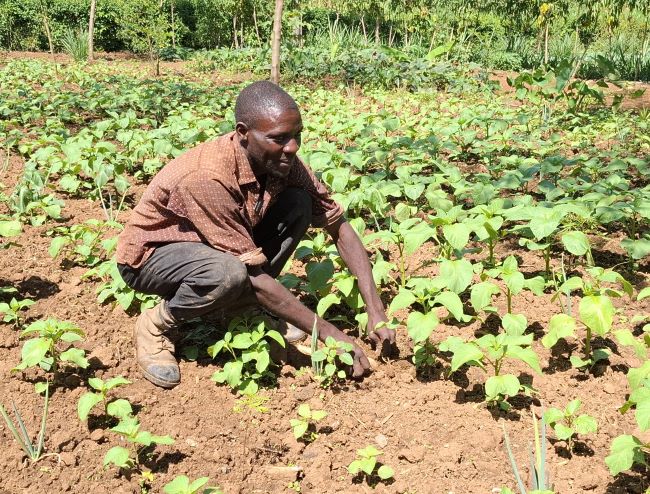
She says under the Cross Soil Project, the trained farmers managed to rehabilitate at least 38,755 hectares of farmland boosting their yields of staple food crops like maize and beans by at least 37 percent compared to untreated reference plots.
Anjwera told Kenya News Agency in an interview, that 2,010 farmer groups and 29 water resource user associations were trained on soil protection and rehabilitation techniques with deliberate focus on improving soil health through sustainable land management and agro ecological practices.
Ajwera said such practices were cost effective and adapted to climate change mitigation efforts, because they were tailored to enrich the soil using organic resources found within the convenience of the farmers.
She cited various cases in Western Kenya, where after sampling the farms for testing, the soils were found quite degraded with high acidity levels and low nutrients to support agriculture, which is the main economic activity of many peasant families.
“After the soil tests, we discussed with the farmers on available options to make their soils healthy to produce higher yields for their food security and income, but we started by training them on where to put terraces to control erosion,” she added.
In other cases, depending on the gradient and the slope, she explained, the farmers were offered other options of planting a strip of grasses like Napier or Bracaria instead of the terraces which could be reinforced with fruity or agroforestry trees.
She said, based on the soil test recommendations, agricultural lime and organic fertilizer could address the acidity to improve the soil structure to facilitate water infiltration especially in the wake of climate change where weather patterns were erratic.
“By doing so the soil is able to harvest as much water as possible from rain that falls through what we call in-situ water harvesting and encourage practicing conservation agriculture through intercropping to reduce perspiration,” she said.
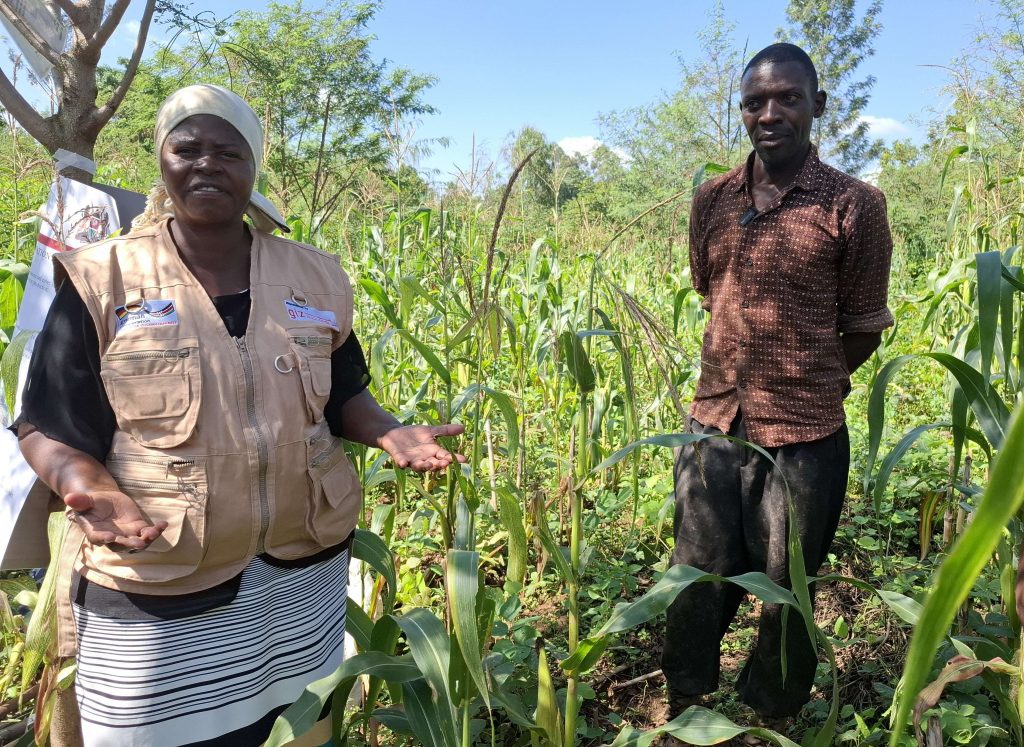
Anjwera observed that an agroforestry training component to make farmers understand the correlation to climate change adaptations, the presence of organisms, bees and birds on the trees near the farms, offered a balance to the ecosystem because of their pollution role.
“We have to coexist harmoniously with nature as we promote integrated pest and disease management as we apply green manure cover crops, trees fixing nitrogen fertilizers and breeding of bio pesticides to control invasive insects,” she said.
She noted that, the implementation of push-pull technology to manage striga weed and maize stalk borer infestation that devastated farmers in post-harvest losses, was a game changer as some of the agro ecological practices that were cost effective.
Currently, she said the ProSoil success stories were evident in Kakamega, Siaya, and Bungoma counties where two main implementing partners namely GFA Welthungerhilfe , Water Resources Users Associations (WRUA) and national and international agricultural research centers (KALRO, CIAT, ICRAF) were working with local NGOs and CBOs.
She says the project, funded to a tune of Euros 20,818,000 and inclined to push for affirmative action insisted on enlisting at least 60 percent of women for the training including community resource persons and trainers in each of the farmers’ nucleus.
Kakamega CEC for Agriculture, Godfrey Owuor, says the project was timely when farmers desperately needed answers to their successive crop failures as demand for food soared with the ever rising population.
He said the pro-soil policy under the GIZ project, was tailored to guide farmers on cost effective and sustainable ways of enriching the fertility of already barren and depleted arable parcels through the use of locally available organic materials.
“We are have enlisted Amukura Agricultural Training College to incorporate the ProSoil course package in their curriculum to train the girls on up-to-date techniques as we cascade the same to local primary schools to ensure that the concept was propagated to the core of the community,” Owuor said.
The productivity of our soils, he noted, went down and could not produce enough food for the rising population, something had to be done to soils of Kakamega to be viable to feed us.
He says the partnership between the county and GIZ came in handy to turn around the desperation of farmers into hope, after farmers acquired knowledge and skills to overcome many challenges that frustrated their effort to make a living.
“As a county government, we’ve done many things to support this program and are currently doing the agro-ecology policy to facilitate seamless operations and return back the training for learners at the 4K clubs in most primary schools,” Owuor said .
Bonface Oronje, a farmer with a success story from Butere Sub County, said the fortunes of the members of Shibembe B farmers group, have turned for the better since they joined the project and they can now comfortably feed their families.
He added that their financial woes were somehow settled now that their farms were no longer disappointing as before and this has even encouraged the youth who previously harbored the notion that farming was for the aged to reconsider their perception.
Oronje said the training helped them adopt the new ways of handling pests and other challenges at no cost using local bio or organic mechanisms unlike in the past when chemicals were deemed to be the only solution yet they were expensive and toxic to the soil.
By Wangari Ndirangu


